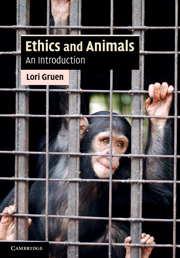1 - Why animals matter
Published online by Cambridge University Press: 05 June 2012
Summary
In early summer 2004, off the northern coast of the North Island of New Zealand, four swimmers were suddenly surrounded by a pod of bottlenose dolphins herding them into a tight circle. The dolphins were agitated, flapping at the water, and they continuously circled the swimmers, keeping them close together for over half an hour. A lifeguard patrolling in a boat nearby saw the commotion and dove in with the swimmers to find out what was happening. While under water, he saw a great white shark, now swimming away, beneath the swimmers. Presumably, the arrival of his patrol boat had scared the shark off, but it was the dolphins who were protecting the swimmers from a shark attack until help arrived. Dr. Rochelle Constantine, from the Auckland University School of Biological Science, noted that this behavior was rare, but not unheard of. “From my understanding of the behaviour of these dolphins they certainly were acting in a way which indicated the shark posed a threat to something. Dolphins are known for helping helpless things. It is an altruistic response and bottlenose dolphins in particular are known for it.”
Are dolphins really altruistic? Do they think of humans as helpless things? Can they understand threats to individuals other than themselves? Do they care about other individuals, even members of different species? If dolphins care about us, should we care about them and other animals?
- Type
- Chapter
- Information
- Ethics and AnimalsAn Introduction, pp. 1 - 43Publisher: Cambridge University PressPrint publication year: 2011

